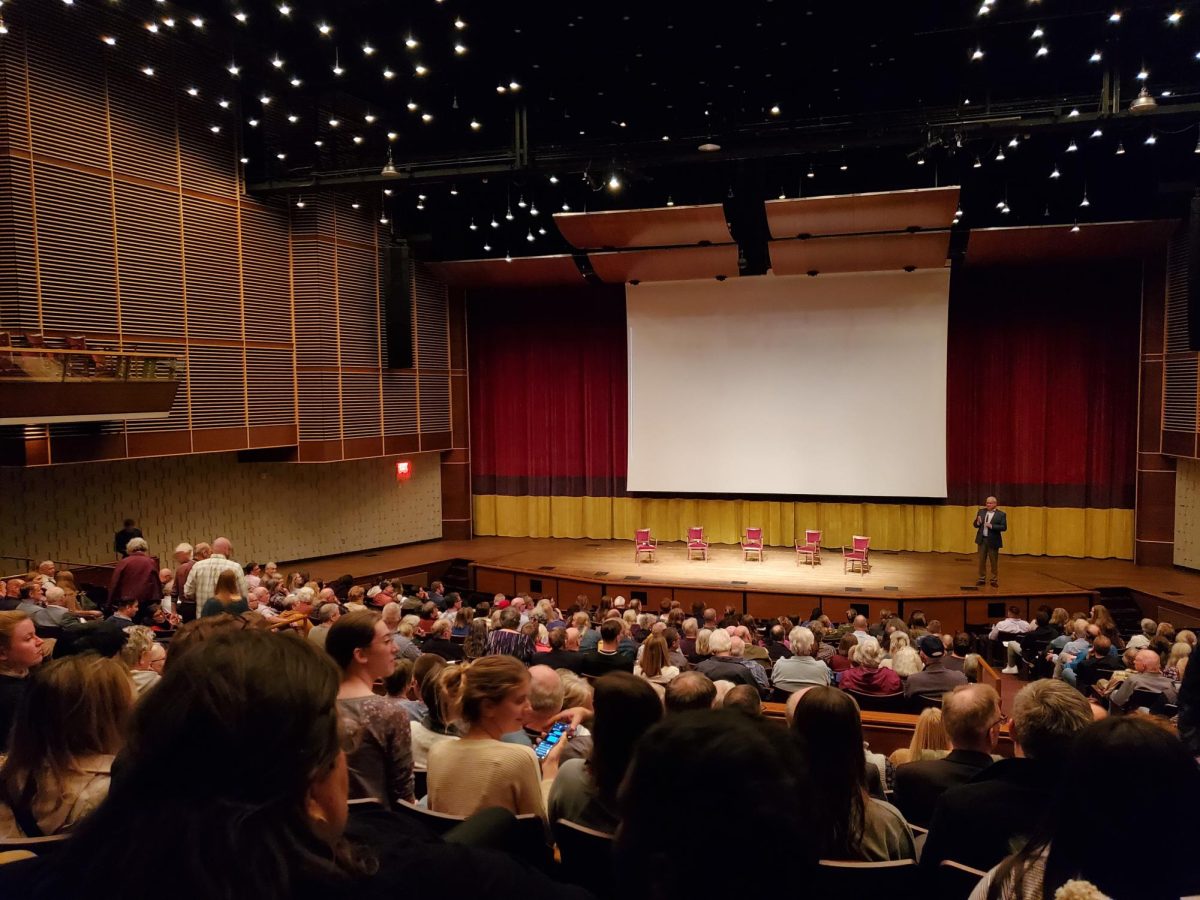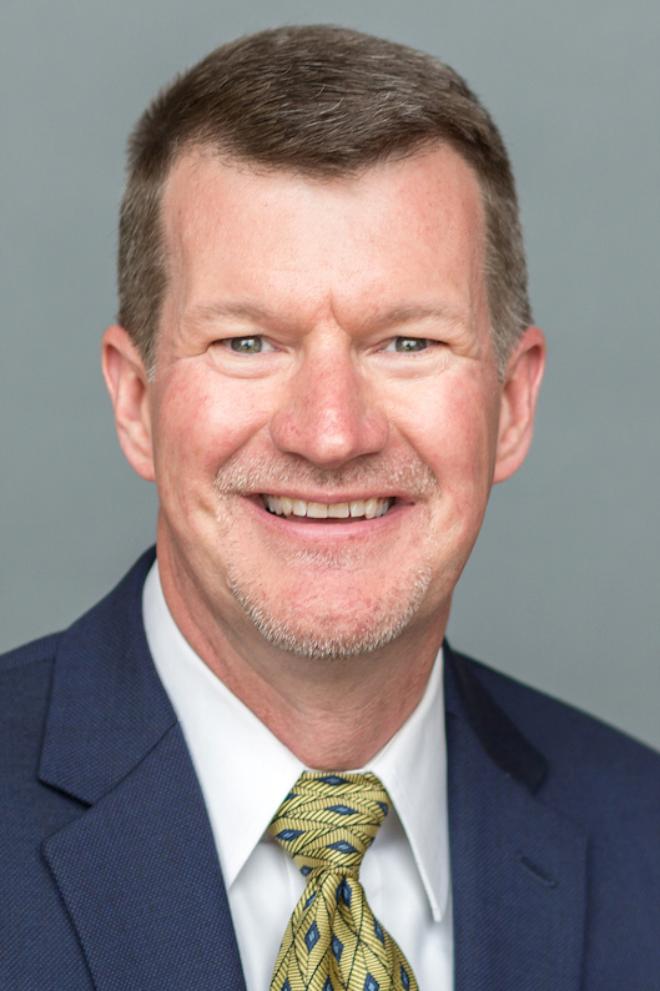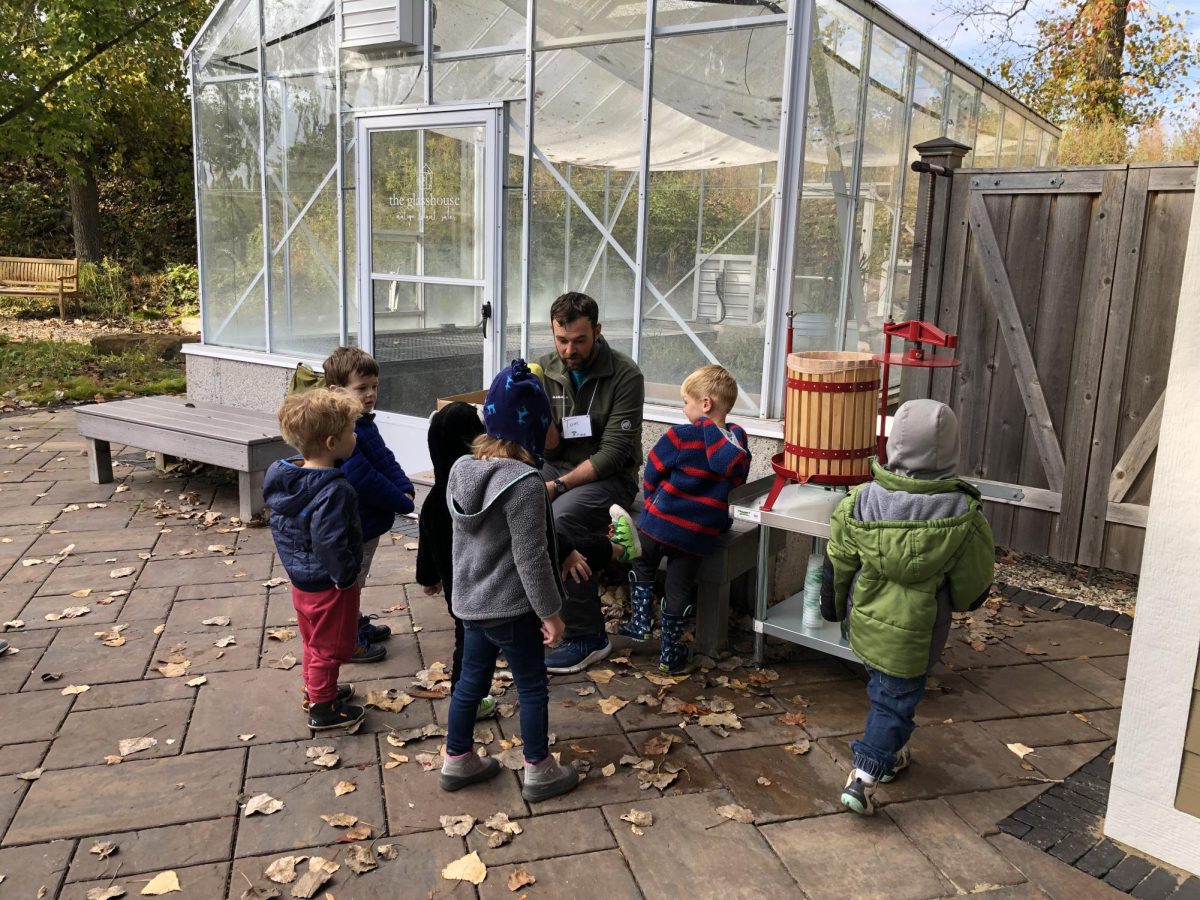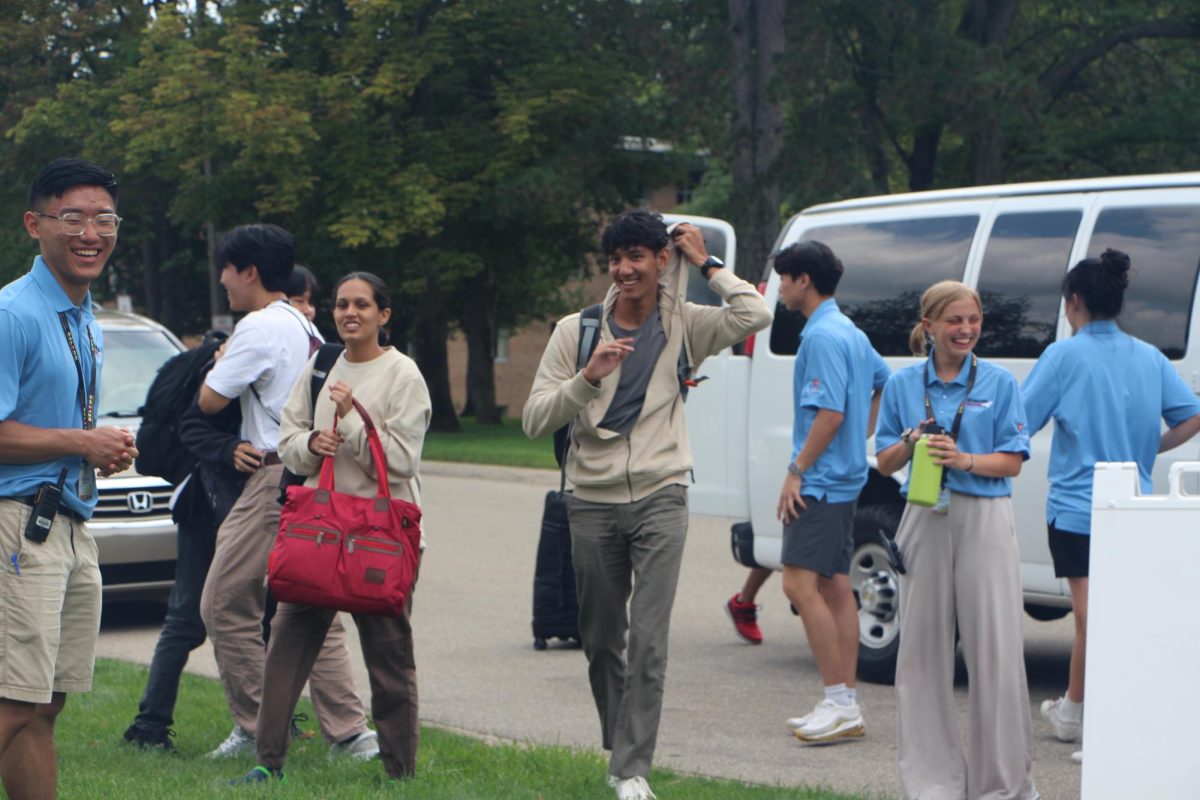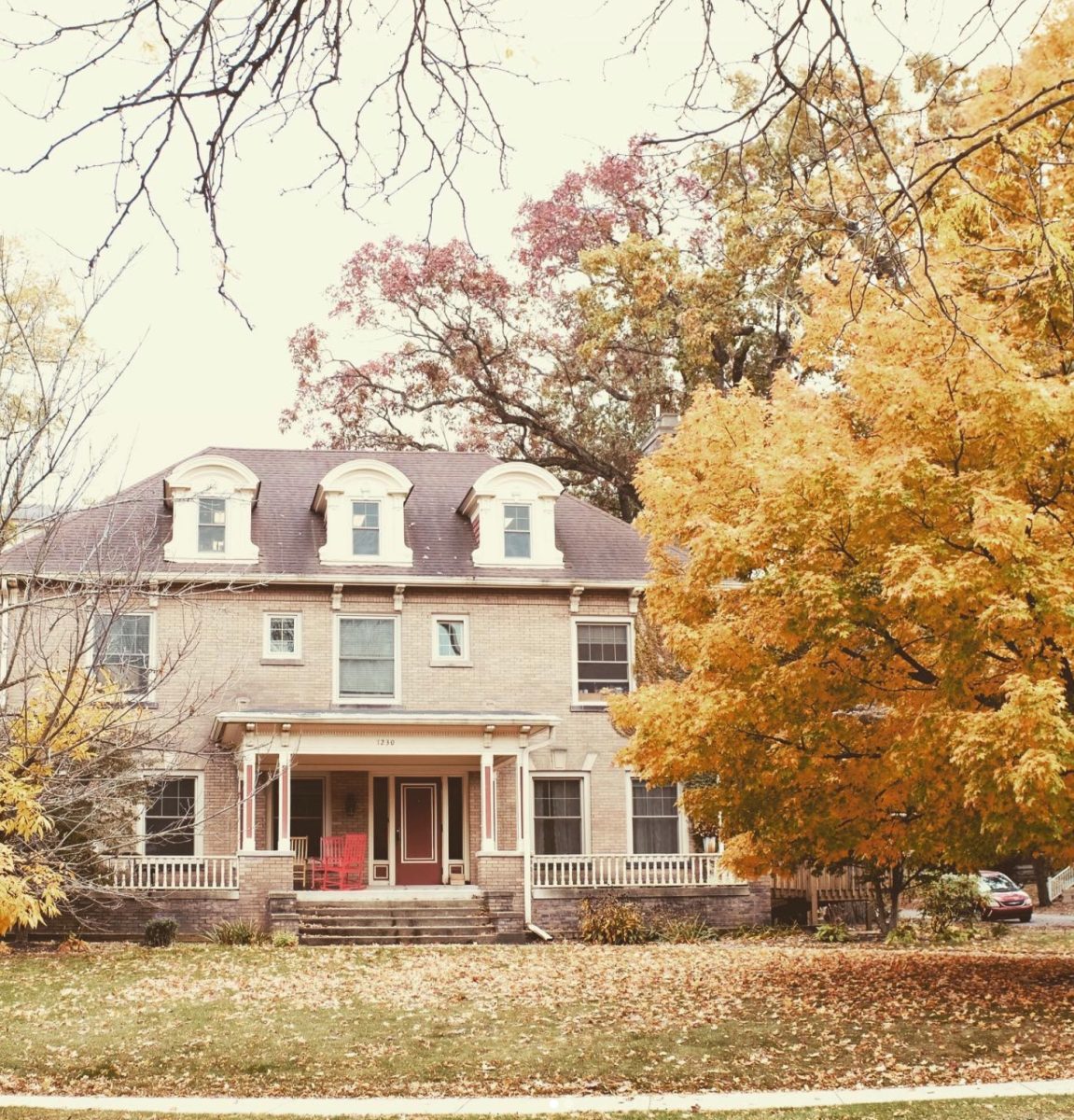Calvin University held a screening of alumnus Nate Roels’ film “Behind Our Walls” — a movie about men incarcerated within Michigan Department of Justice’s Handlon facility, where Calvin Theological Seminary and Calvin University have partnered to bring a college program to inmates.
About 450 people attended the screening and afterward, a panel of people involved with the Calvin Prison Initiative (CPI) or in the making of the film — Nate Roels, filmmaker; Elisha Marr, sociologist and professor in the prison; Nick Nichols, a former CPI student and 2020 Calvin grad who works for CPI and develops reentry programs to help formerly incarcerated people successfully return to communities; Samuel Smartt, the moderator and a film professor who mentored Nate through the documentary making process; and Rob Woods, 2022 CPI graduate — reflected on main themes, motivations and takeaways from the film via questions from Smartt and the audience.
Focused on humanity
According to panelists, the documentary was not simply about CPI and the value of education for students, but rather “the story is actually about people’s lives. And those lives just happen to be going through that program,” Nichols said. Roel’s film, for Nichols, is one of the first films in the prison documentary genre that really focused on the people, not the issue of recidivism or the prison system as a whole.
As a filmmaker, Roels intentionally focused on the humanity of the inmates in the creation of the film. “I wanted the students to be the heroes of the story,” he said.
According to Woods, he succeeded. “I feel like the biggest thing it touched on is it showed our humanness.” That humanity was, in part, revitalized by the education students received, according to Woods, which allowed for transformation and change. “I’ve seen some of that taking place while I was still in there,” Woods said, so “to sit there and hear the stories and to feel like they’re telling my story, they’re telling Nick’s story…they’re telling all of our stories,” was “surreal.”
Elisha Marr has worked as a professor in Handlon since 2016. The documentary gives her a way to educate those around her about what she actually does, because she often gets asked questions like “Aren’t you afraid?” She responds she isn’t because “when I have them as a student, they’re a multi-faceted person. They’re people who have families, they’re people who have friendships, they’re people who are training dogs,” not just people who have committed crimes, she said. And when they do tell her what they have done, Marr said “it is humbling for me because they trust me enough with that information to know that I’m still going to see them as a human being.”
The end of the film highlighted students’ graduation; photos of walking, getting their diplomas, and of their families who were allowed to come and visit. But the very last image was a man who was in prison for life without the possibility of parole. He graduated and was likely going to spend the rest of his life in prison. “I think it’s so powerful,” Smartt said, because even though the man was unlikely to reenter society, it showed that education was “still worth it, still worthwhile…The last thing [the student] says, basically straight at the camera, is ‘let me show you what I can do, even if I’m in here.’”
Ethan VanOrman, a Calvin student studying political science, said that the inclusion of this man’s story emphasized that prison education through CPI is “not a means to an end, but this is the end itself.”
Roels’ story
Back in 2016, Roels was in Smartt’s advanced documentary filmmaking class at Calvin when he created an 11-minute short film called “Renardo,” highlighting the story of a CPI student. “I remember just the hunger that the students had to tell their story,” Roels said. “They each wanted me to pick them.”
This project initially connected him to the program, and Roels did freelance promotional work for CPI for some time until eventually, he realized “this really needs to be a documentary film.”
Filming required jumping through hoops for access into the prison, and COVID posed challenges, Roels said, but the hardest part was “narrowing it down to the amount of content, to cut some of my favorite parts,” he told Chimes.
The process of making the documentary included filming hours and hours and hours of footage. Roels and his team interviewed 16 different prisoners, and only eight ended up in the final cut. But, Roels said, “it takes time to listen. And you have to listen with some empathy,” as people tell their stories.
Roels’ role in helping people tell their stories to a wider audience was one of the most rewarding aspects of his work on the film. “The privilege of helping to tell these stories, to have an important role in that, is really priceless,” Roels said. “It’s really meaningful.”
This four-year project started in 2019 and finished in 2023; Smartt emphasized the sheer amount of time, “stick-to-itiveness” and “determination driven by passion” it took Roels to complete the project. “He really wanted to tell their stories,” said Smartt, who is credited as a story consultant on the film.
“I feel like he made this film better than I could have made this film. This was his thing,” Smartt told Chimes.
Audience response
In the audience at Calvin’s screening were Calvin faculty who had taught in the prison, families of students with CPI as well as a number of community members and Calvin students.
Grace Poortenga, a Calvin student, came to the showing to learn more about CPI and left with a greater understanding –– not only of the program but also of the people. She said it was inspiring to see “courageous hope” and the transformational nature of education these students experienced.
VanOrman told Chimes the screening gave him a better connection with an ever-expanding Calvin community, and it changed the way he thought about his own education. The men studying at the Handlon campus “are some people I’ll never actually get to meet, who are still part of my institution, part of my school –– so being able to see them, even if it’s only for a 50-minute documentary, it’s incredibly meaningful to me,” he said.
Chakya Mcintosh, a family friend of Stacia Hoeksema — a Calvin social work professor who teaches some classes in the prison — and a non-Calvin nursing student came to the screening with Hoeksema. She has a father in prison and said she could relate to the film. She appreciated seeing “what was going on behind the scenes” but her main takeaway was that it showed just how important it was to pour into young folks. “There’s a lot of men in [the documentary] that said they thought they wasn’t smart,” she said, “We need to start telling them that they are smart or show[ing] them love.”
People interested in hosting or attending a screening of the film can check the “Behind Our Walls” Facebook page for updates, and Roels anticipates it being available for streaming in the spring or summer of 2024.



